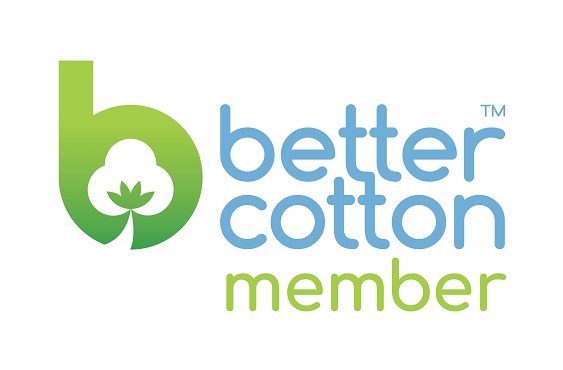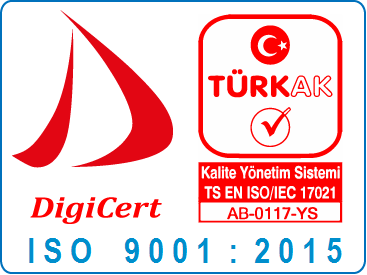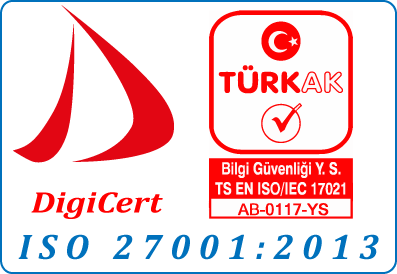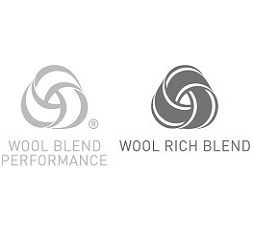I-REC Renewable Energy
I-REC (Renewable Energy Certificate) is developed by RECs International. It is a type of certification that proves the electricity used by a company is obtained out of renewable energy sources. Green Energy Certificate is internationally recognized, transparent and traceable.
ISO 50001:2018 International Organization for Standardization
ISO 50001 Energy Management System, helps create and maintain the processes and systems that are determined by energy experts such as; creating an energy management system, saving energy, decreasing energy expenses and encouraging raising awareness towards the environment.
Energy Management System helps companies to manage the energy use sustainably and efficiently.
Energy Management Systems achieve:
OCS Certificate
The Organic Content Standard (OCS) is an international, voluntary standard that sets requirements for third-party certification of certified organic input and chain of custody. The goal of the OCS is to increase organic agriculture production.
Objectives of the OCS
GRS Certificate
The Global Recycled Standard (GRS) are international, voluntary standards that set requirements for third-party certification of recycled input and chain of custody. The shared goal of the standards is to increase the use of recycled materials. The GRS includes additional criteria for social and environmental processing requirements and chemical restrictions.
Objectives of GRS
Better Cotton Initiative (BCI)
Cotton is an undeniably one of the most important renewable natural resource but the future of cotton production is vulnerable to poor environmental management, poor working conditions and unstable markets. In order to secure the sustainable future of the industry BCI: Better Cotton Initiate organization was established in 2005. BCI operates as a not-for-profit organization and exists to make global cotton production better for the people who produce it, better for the environment it grows in and better for the sector’s future. Being an important benchmark, BCI works and connects people and organizations across the cotton sector from field to store, to promote measurable and continuing improvements for the environment, farming communities and the economies of cotton-producing areas. The Better Cotton Standard System is designed to ensure the exchange of good practices, and to encourage the scaling up of collective action to establish Better Cotton as a sustainable mainstream commodity.
BCI System covers all three pillars of sustainability: environmental, social and economic, incorporates the following 6 principles representing global understanding of Better Cotton:
Being aware of the fact that doing business must be with respect towards the environment and well-being of the people, KIVANÇ operates within the innovative and sustainable environmental approaches at all stages of its production and aims continuously increasing its Better Cotton consumption.

ISO 9001:2015 International Organization for Standardization
International Organization for Standardization, shortly ISO, is an independent, non-governmental international organization with a membership of 162 national standards bodies worldwide.
ISO develop International Standards that support innovation and provide solutions to global challenges. Being an important instruments in facilitating international trade, International Standards give world-class specifications for products, services and systems, to ensure quality, safety and efficiency.
ISO certifications are an important benchmark and at the same time a useful tool to show organization’s credibility, by demonstrating that our products meet the expectations of our customers.
Nowadays, when so many people talking about sustainability, ISO Standards bring much-needed clarity to the conversation, help developing and promoting sustainable growth.
Since March 2017 Kıvanç Tekstil became a part of the network with over one million companies and organizations in over 170 countries certified to ISO 9001.
ISO 9001:2015 Quality Management – one of the most popular standard which ensures that products consistently meet customer’s requirements, and that quality is consistently improved. This standard is based on a number of quality management principles including a strong customer focus, the motivation and implication of top management, the process approach and continual improvement. Using this standard guarantees that customers get consistent, good quality products and services, which in turn brings quality, confidence, trust, safety and other many business benefits.
Click here for download the certificate.

ISO 27001:2013 International Organization for Standardization
International Organization for Standardization, shortly ISO, is an independent, non-governmental international organization with a membership of 162 national standards bodies worldwide.
ISO develop International Standards that support innovation and provide solutions to global challenges. Being an important instruments in facilitating international trade, International Standards give world-class specifications for products, services and systems, to ensure quality, safety and efficiency.
ISO certifications are an important benchmark and at the same time a useful tool to show organization’s credibility, by demonstrating that our products meet the expectations of our customers.
Nowadays, when so many people talking about sustainability, ISO Standards bring much-needed clarity to the conversation, help developing and promoting sustainable growth.
Since March 2017 Kıvanç Tekstil qualified to have right to use ISO 27001:2017.
ISO 27001: Information technology – Security techniques – Information security management systems – Requirements – is the best-known standard in the family providing requirements for an information security management system. This standard specifies the requirements for establishing, implementing, maintaining and continually improving an information security management system of the organization. It also includes requirements for the assessment and treatment of information security risks tailored to the needs of the organization.
Using this standard ensures that organization’s information assets are secured: financial information, intellectual property, employee details or information entrusted to you by third parties.
Click here for download the certificate.

Woolmark
For over 50 year, the Woolmark Company is the global authority on wool, the world’s most important natural fiber. Alongside its unique technical properties, wool is highly sustainable, completely natural, rapidly renewable and biodegradable.
The Woolmark, Woolmark Blend and Wool Blend brands are owned by The Woolmark Company, the global authority on wool. Woolmark licensees are permitted to use one of the brands if their product fulfils its specifications. Being as an important benchmark Woolmark gives confidence to both consumers and manufactures to trust the quality of their wool and wool-care products and now, more than ever, it’s still the ultimate mark of quality in wool products.
Since 2016, as an outcome of a 2 years R&D Project and investments, Kıvanç offers its new sophisticated wool blended collection ‘Kıvanç Plus’. As Woolmark “Wool Blend Performance” and “Wool Rich Blend” licenses, ‘Kıvanç Plus’ helps meet one of the most natural fiber in the world and gives the opportunity to enjoy high quality fabrics.
Click here for download the certificate.

OEKO-TEX Standard 100
The STANDARD 100 by OEKO-TEX® is a comprehensive, third-party testing and certification system for textile raw, intermediate and end products at all stages of processing. The test samples are investigating and testing by the independent Oeko-Tex institutes for their for banned azo dyes, carcinogenic and allergy-inducing colourants, pesticides for textiles made of natural fibres, polycyclic aromatic hydrocarbons (PAHs), tin organic compounds, chlorinated phenols, phthalates (softeners), PFOS, PFOA, surfactant wetting agent residues (APEOs) and many more; and can only be certified if all components meet the specified requirements. Test criteria are updated annually and go far beyond existing legal regulations.
The OEKO-TEX® testing for harmful substances is always geared towards how the textile will actually be used. The more closely the product is in contact with the skin, the stricter the human ecology requirements that it must meet.
STANDARD 100 enables companies to transparently document their responsibility with respect to the product safety of their articles in terms of human ecology; has become the best known, most successful label for textiles tested for harmful substances and become recognized benchmark for the consumer as well.
Click here for download the certificate.

To support and encourage the increase of innovative activities in order to increase the functioning, development, improvement and differentiation of products, to increase the employment of design personnel and qualified labor force so that the economy of the country can be made competitive in an international level through design, and to support the Research, Development and Design Activities No 5746 Law of the Republic of Turkey Science, was published on 09.30.2016 by the Ministry of Industry and Technology.
Official document, aimed to support Research, Development and Design Activities consists the following elements listed below.
Being aware that lasting and sustained way of doing business is only possible and must be with respect towards the environment and well-being of the people, through competitive and value added production Kıvanç Textile established its Design Center, first in Adana and region, which were approved by Ministry of Science, Industry and Technology of Turkey in July 2017.